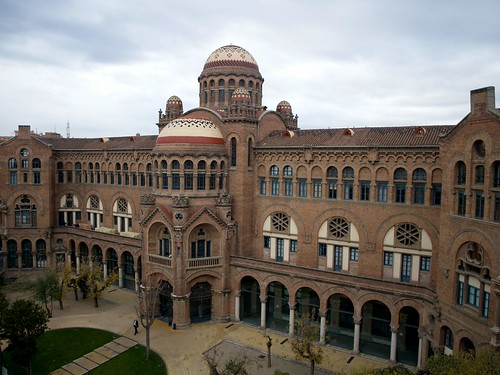Today, suddenly I saw the latest issue of AER (SEP, 2010. How late I was!). I failed to stop myself from having a look at it, although it is already in the exam weeks. After a balance, I chose to have a brief look at this issue. It is a kind of evidence that my life has become worse - I used to at least read the content of every issue of AER, JPE, QJE every season... Now it has been such a long time that I have no access to these journals. I cannot stop myself, and I was so excited when I saw the red face of AER again. (I was also overexcited when I heard the news that LYX 2.0 is going to be released. Fantastic new features: Advanced Search, Spell-checking on the fly, Multilingual Thesaurus, Table features, Progress view and debugging pane, Instant preview inset, etc!!! Awesome! For details, just jump to http://wiki.lyx.org/LyX/NewInLyX20)
OK. Go back to AER. Two articles attracted my interests:
- Social Comparisons and Contributions to Online Communities: A Field Experiment on MovieLens (pp. 1358-98)
Yan Chen, F. Maxwell Harper, Joseph Konstan and Sherry Xin Li - The Law of the Few (pp. 1468-92)
Andrea Galeotti and Sanjeev Goyal
First one first. The first reason why I was attracted because of the words "social" "contribution" "online communities" and "field experiment". Without doubt, it reminded me of Michael Zhang's paper immediately (also, here is a brief intro in Chinese I wrote before).
Then the author. The world is so small. I just met Sherry Xin Li this spring when I was spending a month auditing courses and seminars in Tsinghua and Peking U. Her topic was "虚拟世界实验中的社会距离问题", or "Social Distance in a Virtual World Experiment". It was an interesting paper about experiments they did in the virtual world game "Second Life". Thus, it is interesting for me to see her work again, since the online market is always a market I'm paying attention to.
In this paper, she/they designed several experiments to study how the social comparison increases contributions to an online community. Here are some main results:
- After receiving behavioral information about the median user’s total number of movie ratings, users below the median demonstrate a 530% increase in the number of monthly movie ratings, while those above the median do not necessarily decrease their ratings.
- When given outcome information about the average user’s net benefit score, above-average users mainly engage in activities that help others.
- Effective personalized social information can increase the level of public goods provision.
Public good is always an interesting topic for economists, perhaps due to the fact that market inefficiency/failure has always been concerned by economists. Now I'm interested in the social behaviors. Can we actually design a mechanism to improve the supply of public goods? What are the necessary conditions for those mechanisms to function well?
Moreover, another interesting point is that how to utilize the data from the Internet. Frank has a good comment on it. I'm learning from more and more published papers to see where are the pitfalls.
OK, go to the second paper. The law of the few stresses an empirical phenomenon: in social groups a very small subset of individuals invests in collecting information while the rest of the group invests in forming connections with this select few. The interesting thing here is that someone prefer to invest in information while the rest invest in forming connections (Which type I am? Both???Haha~)
It is a kind of traditional social network application, and a little old (the working paper version I found was written in 2007, now it is 2010! what a long publishing cycle!). The authors talked about the structure of social network, and of course, network game. The meaningful suggestion for policy makers (either government or advertisement makers) is that
by collecting information about the communication network, for example by asking a subset of the community members to report “with whom they talk to” about a particular matter, the government can identify an opinion leader, the individual who receives most nominations. Each dollar spent on this opinion leader will then spill over to all community members.
Which have been confirmed by some of my friends who are using similar strategies in their broadcastings.
Fine... I'm thinking about my master project now so everything I'm caring about is how to apply social network to a certain field. Hopefully I can find some interesting points a few days later. But anyway, I need to pay attention to the exams. Go back to books and problems.


